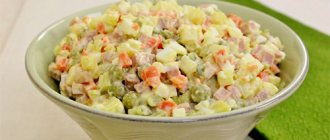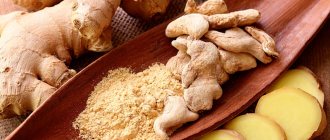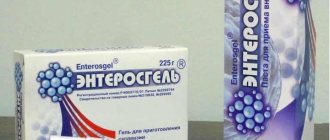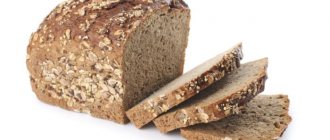The benefits of dates when feeding a baby with breast milk
The benefits of dates have been known since ancient times. They are rich in vitamins, minerals and other beneficial substances. They are high in carbohydrates, proteins, selenium, fluoride, cobalt, copper, glucose, iron, potassium, etc. Therefore, if you are looking for sweet treats while breastfeeding, pay attention to this natural delicacy.
Dates are naturally sweet dry fruits. They will be useful during breastfeeding for both mother and baby.
Thanks to this composition, dates have the following beneficial properties for a nursing woman:
- improve digestion and the functioning of the gastrointestinal tract as a whole;
- normalize intestinal microflora;
- improve brain function;
- strengthen the immune system;
- help in the fight against viruses and infections;
- promote the synthesis of oxytocin, which improves lactation;
- normalize blood pressure;
- improve memory;
- improve the functioning of the heart and blood vessels;
- increase blood oxygen saturation;
- replenish the body's reserves of useful substances;
- promote rapid recovery after childbirth;
- improve kidney function;
- promote the synthesis of serotonin, which leads to improved mood;
- help with depression;
- strengthen bones and teeth;
- cause an influx of energy and vitality;
- improve sleep, help with insomnia;
- quickly saturate, etc.
To improve lactation
Studies have shown that regular consumption of dates promotes the production of oxytocin. This hormone helps increase breast milk production. In addition, blood composition improves. As you know, milk is produced from it. The production of serotonin improves mood, which increases milk supply. By the way, condensed milk works in the same way during breastfeeding.
For constipation
Dates contain a large amount of dietary fiber. Thanks to this, digestion improves. The product promotes the evacuation of feces. It helps with constipation. Regular consumption of dates will help with this problem not only for the mother, but also for the baby.
Beneficial features
The fruits of the date palm are familiar to everyone, but not everyone realizes how rich their vitamin and mineral composition is. Nursing mothers can appreciate all the qualities of the southern delicacy, as it helps not only to increase the amount of milk, but also to restore the tone of the uterus after childbirth. And the baby can more easily cope with the appearance of colic.
The benefits of these dried fruits have been noted for both women and men. And dates help school-age children cope with physical and mental stress. According to reviews, the fruits have antidepressant properties, and they are also used to restore strength and in cases of overwork.

Rich composition
Dates are not digested very quickly, but the beneficial microelements they contain have a beneficial effect on the body. Namely:
- vitamin A - responsible for good vision, development of eye muscles;
- B vitamins - form the nervous system, participate in metabolic processes and promote relaxation;
- Vitamin E is the main assistant to female beauty, creates healthy skin and mucous membranes;
- Vitamin C - strengthens the immune system and the ability to resist infections;
- vitamin PP - supplies the body with energy;
- folic acid - activates the circulatory system and has a positive effect on the strength of blood vessels;
- calcium is the key to strong bones, nails and hair;
- pectin - reduces “bad” cholesterol in the blood;
- other microelements: potassium, magnesium, selenium, iron, fluorine, sulfur - they all participate in metabolism, give the body energy and benefit.
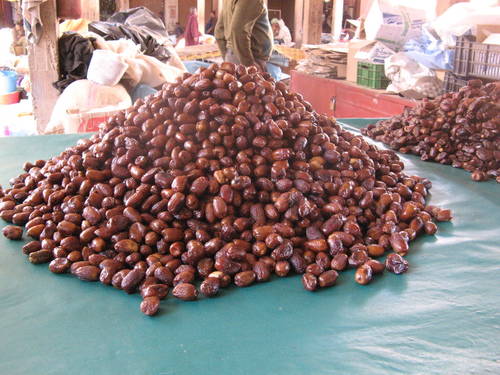
By the way, dates contain little fat, but they are very rich in carbohydrates. There are also unique amino acids that you will not find, for example, in apples, bananas or oranges.
After eating dates, you should rinse your mouth with clean water, since palm fruits contain a lot of sugar, which can cause the appearance of tartar, and subsequently caries.
Effect on the body
By including sweet dried fruits in your diet, you will not only fill your body with valuable substances, but also prevent the development of a number of diseases. The date helps to normalize the functioning of life support systems and is also capable of performing a regenerative function.
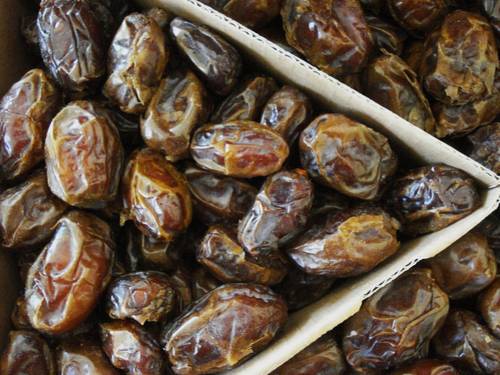
Oriental fruit:
- increases immunity;
- eliminates heartburn;
- fights poor memory by improving brain activity;
- lowers pressure in blood vessels;
- treats lung diseases by removing excess phlegm;
- normalizes the functioning of the cardiovascular system;
- regulates the activity of the liver and kidneys;
- restores strength after illnesses;
- prevents the development of oncology;
- helps fight colds and viruses;
- improves sleep.
Eating date fruits is a good prevention of intestinal disorders, as well as helminthic infestations!
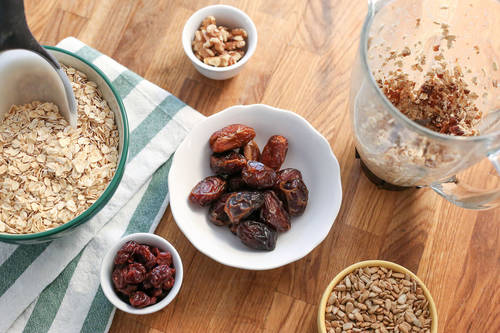
Possible harm and contraindications
Despite the fact that dates are good for health, they should be used with caution during breastfeeding. Contraindications include the following diseases:
- diabetes;
- kidney diseases;
- colitis;
- peptic ulcers of the gastrointestinal tract;
- diseases of the liver and pancreas, etc.
The product is very sweet and high in calories, so it can cause weight gain. It is not recommended for obese people to eat it in large quantities.
It is important to remember that store-bought products are often treated with chemicals or gas. Breastfeeding mothers are not allowed to eat this type of food.
Is it possible to have allergies or colic?
The product is not a strong allergen, but it is important to monitor your baby’s reaction. Allergies can manifest as rash, cough, itching, spots and other symptoms. If you are allergic to dates, you should not eat them. In addition, there is always a risk of individual intolerance.
Despite the fact that the product has a beneficial effect on the gastrointestinal tract, if consumed in excess, bloating, stool problems, or colic may occur due to the way fiber is digested.
Rules for use during lactation
When calculating the norms of fruit consumption during breastfeeding, the benefits and harms are taken into account. You can eat 3-5 dates per day, preferably in the morning.
It is healthier to eat the fruits by removing the seeds in advance. The peel cannot be peeled due to its rich coarse fiber content. Each berry is washed separately with hot water. After use, it is recommended to rinse your mouth with water to avoid sugar retaining on the tooth enamel.
Signs for product withdrawal:
- Swelling of the face, limbs and other soft parts of the body.
- Allergies, rash, redness, itching.
- Temperature increase.
- Shortness of breath, wheezing.
- Nausea, vomiting, abdominal pain.
Dates contain a lot of protein, so people suffering from liver pathology, stomach ulcers, colitis, pancreas, and diabetes should not overuse the fruits.
You can also dry the berries yourself at home. To do this, fresh fruits are bought at the market, thoroughly washed and laid out in an open space in direct sunlight. It is important to turn the dates over during the drying process so that all sides dry evenly. Do not use microwaves or oven for drying.
The berries are eaten separately with tea, replacing chocolate or sweets, and also added to salads and cereals. The result is also a very tasty, natural compote that has a beneficial effect on milk production. Dried fruits are stored in a tightly closed container.
Can a nursing mother eat dates?
The product is included in the list of safe for nursing mothers. It is not highly allergenic and has a good effect on the gastrointestinal tract. It is important to adhere to the rules of introduction and use. Then you will get the maximum benefit and will not harm the infant.
In the first days of a newborn’s life, the first month after birth
Dates are allowed to be eaten by a lactating woman from the first days after childbirth , especially if they were present in the diet earlier and the mother did not have a negative reaction to them. The product improves milk production and its nutritional value. It is important to enter dates correctly into the menu. For the first time, eat 1 dry fruit or a slice of fresh date. It is best to try a new product in the morning to observe your baby's reaction throughout the day.
If you do not notice signs of allergies or gastrointestinal problems, you can gradually increase the dose. In the first month, it is advisable to limit yourself to 2-3 pieces, then - 5-7 dried fruits. This is the amount considered safe.
For allergies (diathesis) in a child
If your baby has an acute allergic reaction to some product, trying dates during this period is prohibited. If you have diathesis, it is also recommended to exclude the product from your diet, as it contains a lot of sugar, which can aggravate the situation. If the child is now absolutely healthy, you can safely eat all foods that do not cause a negative reaction in the baby.
How many dates can you eat per day from what month?
Excessive consumption of dates may cause adverse reactions. Therefore, you should adhere to the standards given in the table.
| Baby's age | How much to eat |
| 1 month | It is allowed to be introduced into the diet starting from 1 piece. You can increase the dosage to 2-3 pieces per day. |
| 2 month | You are allowed to eat 2-3 pieces per day. |
| 3–4 month | You can eat up to 5–7 pieces per day. |
Doctor Komarovsky's opinion
Dr. Komarovsky does not support the breastfeeding diet. He believes that strong restrictions harm mother and baby, as they cause a deficiency of nutrients. A well-known doctor recommends that a nursing mother eat her usual natural food, observing the baby’s reaction. Since dates are a healthy natural product, they are allowed for a new mother.
Reviews
Masha, 29 years old
I didn’t particularly limit myself during breastfeeding. I ate a little of everything, including dates. Never had a rash, no colic.
Ekaterina, 37 years old
After 2 months, the doctor allowed me to eat a little bit of everything. That's what I ate. The baby broke out a lot one day. I decided it was for dates, since I didn’t eat anything else exotic.
Valeria, 24 years old
I didn’t really go on a diet there, but I’m not a fan of eating dates either. As a small child I had constipation, I ate dried fruits, and there were dates. It didn’t fall out, the problem disappeared. Well, good. These constipation medications taste so bad))
Composition and properties of dates
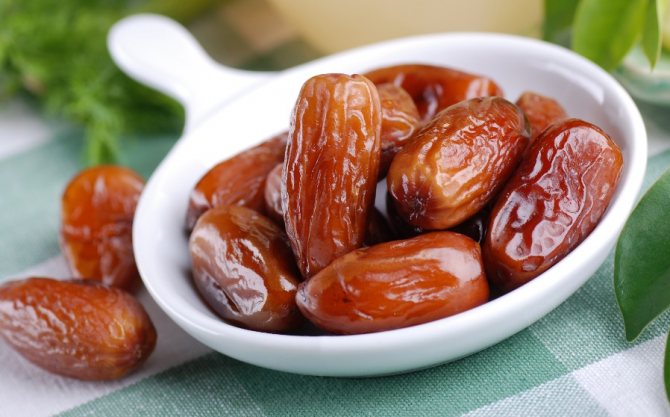
Sucrose, glucose, fructose make it quite nutritious and high in calories, while the fruits do not give a feeling of heaviness. The main components of dates:
- Pectin is a necessary element for metabolic disorders in the body;
- Oxytocin – improves milk production in a nursing mother;
- Vitamin A – has a positive effect on the skeletal system, skin, vision;
- Serotonin, melatonin, Vitamin C – give strength, energy, lift your spirits;
- B vitamins – ensure normal functioning of the nervous system;
- Vitamin E is a necessary element for hormonal recovery after childbirth, improves immunity;
- Phosphorus – has a beneficial effect on brain activity;
- Iron, copper – ensures the maintenance of normal blood composition;
- Calcium, fluorine – provide strengthening of bone tissue and tooth enamel;
- Selenium - provides a protective function for the body;
- Sodium, magnesium - have a positive effect on the functioning of the kidneys and muscular system, and normalize blood pressure.
Selection and storage
During lactation, it is especially important for a woman to eat quality products, so you need to approach the purchase of dates responsibly. They can be sold fresh, dried or dried.
Dried and sun-dried dates should be dark brown. This indicates that they were made from ripe fruits. It is better not to buy light dried fruits when breastfeeding. Don't buy shiny dates. This suggests that they were lubricated with oil or other substances for better storage and presentation. You should also avoid products with cracks or other damage to the skin. They indicate a violation of production technology. Perhaps they are too dry.
To the touch, high-quality dates are moderately soft, greasy, and smear on your fingers when squeezed. They should not be hard and dry or "alive". The presence of a smell of dampness or mold should also alert you. Products should not stick to each other. This is a consequence of the addition of sugar syrup, which is undesirable to eat during breastfeeding.
During breastfeeding, it is recommended to buy dates with pits. This prevents bacteria from getting inside, which often happens when the kernels are removed. The voids under the skin indicate that the product is overripe.
If you buy fresh dates, make sure they are ripe. They should not be damaged where pathogenic microorganisms live. Traces of mold and rot are also a reason to refuse the purchase.
Storing dates is equally important. It is prohibited to store dates in the following ways:
- in open form, without containers or packaging;
- in hot conditions;
- in the sun.
Fresh dates should be stored in the refrigerator. It is best to wash them immediately before use, this way they will last longer, perhaps up to 2 months. It is recommended to store dried fruits in a glass or plastic container that closes well in the refrigerator. Another cool, dry place will do. In the refrigerator at zero temperature the product can be stored for up to a year, in the freezer for up to 4 years without loss of taste.
How to dry dates at home?
If you buy fresh fruit, you can dry it at home. This way you will be confident in the quality of the product. There are several drying methods:
- Natural drying. Place the fruits on newspaper in the sun. Turn over occasionally. This drying will take about 2 weeks.
- In the dryer. Everything is simple here. Wash the fruits, dry them and place them in the dryer.
- In the oven. This method will take about half an hour. Cover a baking sheet with parchment and place the washed, dried fruits on it. Place in the oven preheated to 120 degrees. Either leave the door ajar or open the oven periodically to allow condensation to escape.
In what form can dates be eaten during breastfeeding?
Since dates are practically non-allergenic, they can be eaten in any form: raw, dried, in dried fruit compotes, baked goods and other dishes. Nursing mothers are still advised to choose dried fruit compote while breastfeeding. In this form, the fruits will provide all their beneficial properties, and the gastrointestinal tract will be able to avoid the burden of digesting dietary fiber.
Compote
There are many recipes for date compote, but with breastfeeding, some ingredients are still prohibited, so you should choose the most gentle recipes.
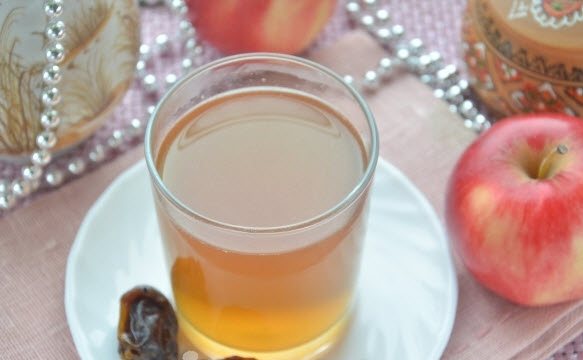
Compote of dates and apples for a nursing mother.
Compound:
- Apples - 4 medium.
- Dates - a handful.
- Water - 1.5 l.
- Cinnamon - to taste.
Preparation:
- Soak the dates in warm water for 10-15 minutes and rinse.
- Cut the apples into pieces and add to the dried fruits.
- Pour in water and cook for a third of an hour after boiling.
- Add cinnamon. Remember, it can cause allergies, so be careful with it when breastfeeding.
- Let the compote stand covered for several hours.
Over time, you can add prunes, pears, dried apricots and other dried fruits to the compote. You can read about dried apricots for nursing mothers in the article “Apricots during breastfeeding.”

